- Home
- Investigations
- Yasam Ayavefe
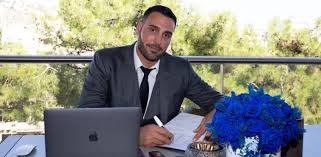
Yasam Ayavefe
Threat Alert- Investigation status
- Ongoing
We are investigating Yasam Ayavefe for allegedly attempting to conceal critical reviews and adverse news from Google by improperly submitting copyright takedown notices. This includes potential violations such as impersonation, fraud, and perjury.
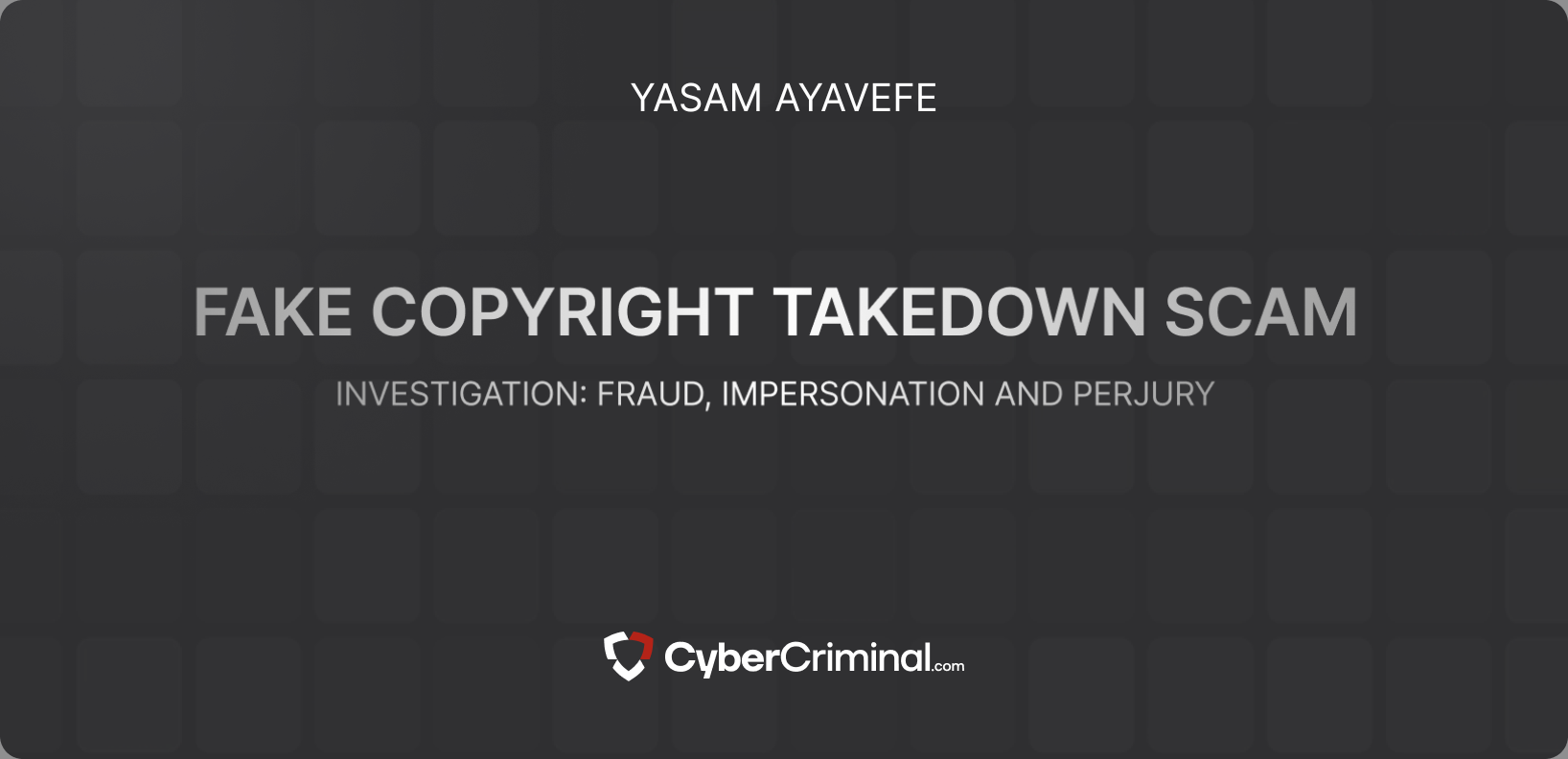
- https://lumendatabase.org/notices/43699401
- https://lumendatabase.org/notices/40610744
- https://lumendatabase.org/notices/45331437
- https://lumendatabase.org/notices/45335186
- https://lumendatabase.org/notices/45335233
- https://lumendatabase.org/notices/45335275
- https://lumendatabase.org/notices/45332547
- https://lumendatabase.org/notices/45282242
- https://lumendatabase.org/notices/45282983
- https://lumendatabase.org/notices/45283864
- https://lumendatabase.org/notices/45188990
- https://lumendatabase.org/notices/44993408
- https://lumendatabase.org/notices/45349746
- https://lumendatabase.org/notices/45336239
- https://lumendatabase.org/notices/45332227
- https://lumendatabase.org/notices/41955068
- https://lumendatabase.org/notices/45349583
- https://lumendatabase.org/notices/45349517
- https://lumendatabase.org/notices/45352569
- https://lumendatabase.org/notices/45351215
- https://lumendatabase.org/notices/45349519
- https://lumendatabase.org/notices/45351200
- https://lumendatabase.org/notices/45348858
- https://lumendatabase.org/notices/45349005
- https://lumendatabase.org/notices/45349719
- https://lumendatabase.org/notices/45058634
- https://lumendatabase.org/notices/45016669
- https://lumendatabase.org/notices/45015451
- https://lumendatabase.org/notices/45282036
- https://lumendatabase.org/notices/45331537
- https://lumendatabase.org/notices/48016758
- https://lumendatabase.org/notices/49096453
- https://lumendatabase.org/notices/48664592
- https://lumendatabase.org/notices/48014559
- https://lumendatabase.org/notices/48017245
- https://lumendatabase.org/notices/48072304
- https://lumendatabase.org/notices/48072214
- https://lumendatabase.org/notices/50112968
- https://lumendatabase.org/notices/50118640
- https://lumendatabase.org/notices/50113479
- https://lumendatabase.org/notices/50066674
- https://lumendatabase.org/notices/50158977
- https://lumendatabase.org/notices/50153636
- https://lumendatabase.org/notices/50054851
- https://lumendatabase.org/notices/50119480
- https://lumendatabase.org/notices/50047530
- https://lumendatabase.org/notices/50121480
- https://lumendatabase.org/notices/43800110
- https://lumendatabase.org/notices/50064593
- https://lumendatabase.org/notices/50119374
- https://lumendatabase.org/notices/50154578
- https://lumendatabase.org/notices/50036512
- https://lumendatabase.org/notices/51950916
- https://lumendatabase.org/notices/50402791
- https://lumendatabase.org/notices/50400482
- https://lumendatabase.org/notices/50374948
- https://lumendatabase.org/notices/45806337
- https://lumendatabase.org/notices/45836202
- https://lumendatabase.org/notices/42074703
- https://lumendatabase.org/notices/49994059
- https://lumendatabase.org/notices/43264003
- https://lumendatabase.org/notices/49869446
- https://lumendatabase.org/notices/43261108
- https://lumendatabase.org/notices/45361065
- https://lumendatabase.org/notices/45389364
- https://lumendatabase.org/notices/51960392
- https://lumendatabase.org/notices/51951989
- https://lumendatabase.org/notices/51954031
- https://lumendatabase.org/notices/51961208
- https://lumendatabase.org/notices/51954986
- https://lumendatabase.org/notices/51961271
- https://lumendatabase.org/notices/51950141
- https://lumendatabase.org/notices/44991337
- https://lumendatabase.org/notices/44924665
- https://lumendatabase.org/notices/45394374
- https://lumendatabase.org/notices/51972893
- https://lumendatabase.org/notices/51969750
- https://lumendatabase.org/notices/52009564
- https://lumendatabase.org/notices/52051861
- https://lumendatabase.org/notices/52032511
- https://lumendatabase.org/notices/52031975
- https://lumendatabase.org/notices/51972224
- https://lumendatabase.org/notices/52003543
- https://lumendatabase.org/notices/51950141
- https://lumendatabase.org/notices/51967450
- https://lumendatabase.org/notices/51690952
- https://lumendatabase.org/notices/51690266
- https://lumendatabase.org/notices/51689818
- https://lumendatabase.org/notices/52596823
- https://lumendatabase.org/notices/52511155
- https://lumendatabase.org/notices/52487295
- https://lumendatabase.org/notices/52678035
- https://lumendatabase.org/notices/52549622
- https://lumendatabase.org/notices/52488087
- https://lumendatabase.org/notices/52715147
- https://lumendatabase.org/notices/52617695
- https://lumendatabase.org/notices/52587274
- https://lumendatabase.org/notices/52460803
- https://lumendatabase.org/notices/52459885
- https://lumendatabase.org/notices/52460430
- https://lumendatabase.org/notices/52462653
- https://lumendatabase.org/notices/52459563
- https://lumendatabase.org/notices/52395441
- https://lumendatabase.org/notices/52527509
- https://lumendatabase.org/notices/52444143
- https://lumendatabase.org/notices/52715522
- https://lumendatabase.org/notices/52701736
- https://lumendatabase.org/notices/52728169
- https://lumendatabase.org/notices/51919165
- August 14, 2024
- August 9, 2024
- April 5, 2024
- October 11, 2024
- October 09, 2024
- October 05, 2024
- September 27, 2024
- October 11, 2024
- June 01, 2024
- September 29, 2024
- September 26, 2024
- February 02, 2025
- January 11, 2025
- January 12, 2025
- January 14, 2025
- March 19, 2025
- March 20, 2025
- March 19, 2025
- March 18, 2025
- March 21, 2025
- April 05, 2024
- January 12, 2025
- March 21, 2025
- March 18, 2025
- October 30, 2024
- March 20, 2025
- March 18, 2025
- March 20, 2025
- August 14, 2024
- March 18, 2025
- March 20, 2025
- October 31, 2024
- March 21, 2025
- March 17, 2025
- October 12, 2024
- June 05, 2024
- March 16, 2025
- July 23, 2024
- March 12, 2025
- July 23, 2024
- May 13, 2025
- March 29, 2025
- March 29, 2025
- March 28, 2025
- October 12, 2024
- October 14, 2024
- May 14, 2025
- May 13, 2025
- May 13, 2025
- May 13, 2025
- May 14, 2025
- May 14, 2025
- May 13, 2025
- September 30, 2024
- September 25, 2024
- October 14, 2024
- May 13, 2025
- May 13, 2025
- May 13, 2025
- May 16, 2025
- May 14, 2025
- May 14, 2025
- May 14, 2025
- May 13, 2025
- May 13, 2025
- May 06, 2025
- May 06, 2025
- May 06, 2025
- June 02, 2025
- June 02, 2025
- June 02, 2025
- June 01, 2025
- June 01, 2025
- June 01, 2025
- June 01, 2025
- June 01, 2025
- June 01, 2025
- June 01, 2025
- June 01, 2025
- June 01, 2025
- June 01, 2025
- June 01, 2025
- June 01, 2025
- June 01, 2025
- June 01, 2025
- June 01, 2025
- June 01, 2025
- June 02, 2025
- June 02, 2025
- May 13, 2025
- David Miller
- peter nguyen
- Peter Nguyen
- net legal solutions
- uj22.com
- uj22
- uj22
- uj22
- uj22
- uj22
- net legal solutions
- uj22.com
- uj22
- uj22
- uj22.com
- uj22
- uj22
- uj22
- David Miller
- uj22
- uj22
- uj22.com
- Net Legal solutions
- uj22
- NET LEGAL Solutions
- Peter Nguyen
- uj22
- net legal solutions
- uj22
- net legal solutions
- uj22
- uj22
- uj22.com
- uj22
- net legal solutions
- peter nguyen
- uj22
- uj22
- uj22
- uj22
- peter nguyen
- peter nguyen
- peter nguyen
- peter nguyen
- Peter Nguyen
- Peter Nguyen
- peter nguyen
- peter nguyen
- peter nguyen
- peter nguyen
- peter nguyen
- peter nguyen
- peter nguyen
- peter nguyen
- peter nguyen
- Caroline Nunes
- Caroline Nunes
- Caroline Nunes
- peter nguyen
- peter nguyen
- peter nguyen
- peter nguyen
- peter nguyen
- peter nguyen
- peter nguyen
- peter nguyen
- peter nguyen
- peter nguyen
- peter nguyen
- peter nguyen
- peter nguyen
- peter nguyen
- peter nguyen
- peter nguyen
- peter nguyen
- peter nguyen
- peter nguyen
- peter nguyen
- uj22
- https://pixabay.com/illustrations/cyber-security-information-security-3400657/
- https://unsplash.com/photos/a-laptop-computer-sitting-on-top-of-a-white-table-2BaWc_hHN2U
- https://bird.tools/category/cyberattacks/
- https://peternguyen5.myportfolio.com/tyew54
- https://peternguyen5.myportfolio.com/nw
- https://peternguyen5.myportfolio.com/yt-1
- https://peternguyen5.myportfolio.com/yy
- https://peternguyen5.myportfolio.com/riei
- https://peternguyen5.myportfolio.com/enw
- https://peternguyen5.myportfolio.com/tyt
- https://peternguyen5.myportfolio.com/ftt
- https://peternguyen5.myportfolio.com/yatt
- https://peternguyen5.myportfolio.com/
- https://peternguyen5.myportfolio.com/uty493i33w
- https://peternguyen5.myportfolio.com/ty
- https://peternguyen5.myportfolio.com/ht
- https://ajanskktc.com/2022/04/22/resmi-gazeteden-haberler/
- https://peternguyen5.myportfolio.com/yurioow
- https://peternguyen5.myportfolio.com/tyf42dd5
- https://peternguyen5.myportfolio.com/ptee45
- https://peternguyen5.myportfolio.com/ptpe
- https://peternguyen5.myportfolio.com/99rjf4f
- https://peternguyen5.myportfolio.com/933jeidjd
- https://peternguyen5.myportfolio.com/tuei3833
- https://peternguyen5.myportfolio.com/yan
- https://peternguyen5.myportfolio.com/first
- https://peternguyen5.myportfolio.com/gemi
- https://peternguyen5.myportfolio.com/b12
- https://www.uj22.com/2021/07/12/finans/
- https://www.uj22.com/2020/02/16/191/
- https://www.uj22.com/2020/09/02/133/
- https://www.uj22.com/2015/07/12/65/
- https://www.uj22.com/2022/07/12/85/
- https://www.uj22.com/2020/01/14/104/
- https://www.uj22.com/2020/01/14/101/
- https://uj22.com/453-2/
- https://uj22.com/462-2/
- https://uj22.com/451-2/
- https://uj22.com/364-2/
- https://uj22.com/544-2/
- /https://uj22.com/509-2/
- https://uj22.com/306-2/
- https://uj22.myportfolio.com/ptre
- https://uj22.com/466-2/
- https://uj22.com/292-2/
- https://uj22.com/469-2/
- https://pixabay.com/illustrations/cyber-security-information-security-3400657/
- https://uj22.com/352-2/
- https://uj22.com/466-2/
- https://uj22.myportfolio.com/ptr-2
- https://uj22.com/250-2/
- https://www.thetimes.com/business-money/markets/article/sophos-shares-cut-by-a-quarter-after-slump-in-demand-mljpdvqn9
- https://uj22.com/220-2/
- https://uj22.com/kalem/
- https://uj22.com/135-2/
- https://uj22.com/business-tekne/
- https://uj22.com/1101-2/
- https://uj22.com/650-2/
- https://uj22.com/623-2/
- https://uj22.com/599-2/
- https://peterngu.myportfolio.com/tyre
- https://uj22.com/1144-2/
- https://uj22.com/1113-2/
- https://uj22.com/1138-2/
- https://uj22.com/1116-2/
- https://uj22.com/1169-2/
- https://uj22.com/1179-2/
- https://uj22.com/1085-2/
- https://peternguyen5.myportfolio.com/http-1
- https://peternguyen5.myportfolio.com/
- https://peterngu.myportfolio.com/ptpe
- https://uj22.com/1125-2/
- https://uj22.com/1132-2/
- https://uj22.com/1107-2/
- https://uj22.com/1252-2/
- https://uj22.com/1176-2/
- https://uj22.com/1182-2/
- https://uj22.com/1135-2/
- https://uj22.com/1172-2/
- https://uj22.com/1085-2/
- https://uj22.com/1144-2/
- https://www.rts.rs/
- https://kompromat1.online/foto/articles_foto/2024/08/10/289582.jpg?20240810221655
- https://uj22.com/1425-2/
- https://uj22.com/1431-2/
- https://uj22.com/1404-2/
- https://uj22.com/1362-2/
- https://uj22.com/1377-2/
- https://uj22.com/1353-2/
- https://uj22.com/1389-2/
- https://uj22.com/1356-2/
- https://uj22.com/1368-2/
- https://uj22.com/1350-2/
- https://uj22.com/1386-2/
- https://uj22.com/1383-2/
- https://uj22.com/1374-2/
- https://uj22.com/1413-2/
- https://uj22.com/1410-2/
- https://uj22.com/1072-2/
- https://birn.eu.com/news-and-events/birn-rejects-pressure-to-delete-news-reports-about-turkish-fraudster/
- https://birn.eu.com/news-and-events/international-free-media-advocates-condemn-cyber-attack-and-falsecopyright-claims-against-birn/
- https://balkaninsight.com/2024/08/08/birn-rejects-pressure-to-delete-news-reports-about-turkish-fraudster
- https://wearesolomon.com/mag/focus-area/accountability/passport-privilege-turkish-fraudsters-route-to-honorarygreek-citizenship/
- https://www.milletgazetesi.gr/yunanistan/turkiyenin-kirmizi-bultenle-aradigi-sahsa-yunan-vatandasligi
- https://x.com/superkulupcomtv/status/1771683586665496661
- https://www.bursa5n1k.com/gundem/kirmizi-bultenle-aranan-ayavefe-ye-yunanistan-vatandaslik-verdi-50117
- https://www.borsaajansi.com/kirmizi-bultenle-aranan-yasam-ayavefe-haberlerine-erisim-yasagi-bir-garipturkiye/4548/
- https://www.istiklal.com.tr/turkiye-kirmizi-bulten-cikartti-yunanistan-vatandaslik-verdi
- https://www.dijigazete.net/ayavefeye-turkiyeden-kirmizi-bulten-yunanistandan-vatandaslik
- https://www.ajanspressturkiye.com/yasam-ayavefe-simdi-de-liberya-diplomatik-pasaportu-almis/493/
- https://teleqraf.com/news/dunya/333512.html
- https://www.dirilispostasi.com/haber/11910439/erdogan-dusmanligi-yasa-cignetti-onun-adi-artik-leonidas
- https://www.haksozhaber.net/turkiyenin-kirmizi-bultenle-aradigi-yasam-ayavefeye-yunan-vatandasligi-154915h.htm
- https://www.kibrisadahaber.com/gazeteci-erk-acarer-halil-falyali-cinayetinde-sedat-pekerin-isaret-ettigi-yasamayav-370334h.htm
- https://mikro-makro.net/yasam-ayavefenin-sirketi-selin-turizm-ltdde-yeni-hissedar-ve-sermaye-artirimi
- https://www.medyadunyasi.com.tr/yasam-ayavefe-kirmizi-bultenle-aranirken-yunanistan-kimlik-verdi-ingiltereoturum-verdi/1154/
- https://www.superkulup.com/haber/halil-falyali-suikastinde-carpici-iddia-tetikcilere-8-milyon-dolar-kim-odedi-274378.html
- http://www.habertam.com/guncel/gazeteci-mi-sedat-pekerin-basin-danismani-mi-haberi-97801
- https://www.basin54.com/haber/erdogan-dusmanligi-yunanistan-a-yasa-cignetti-o-nun-adi-artik-leonidas20749.html
- https://www.polemikhaber.com/erdogan-muhalifi-ve-hristiyan-turkiyenin-kirmizi-bultenle-aradigi-yasam-ayavefeyeyunanistan-kucak-acti
- https://www.habervakti.com/yunanistan-kirmizi-bultenle-aranan-ayavefeye-onursal-vatandaslik-verdi
- https://www.politikyol.com/interpolun-yakaladigi-sahis-emniyet-mudurlugunu-erisime-engelletti
- https://www.kibrisgercek.com/aydin-sokak-ortasinda-infaz-kurgu-olmaz
- https://www.turkmedyasi.com/yas%CC%A7am-ayavefeye-yonetilen-iddialarin-asilsiz-oldug%CC%86uanlas%CC%A7ildi/
- https://pbs.twimg.com/media/GJItk28WwAAcjA5.png
- https://londragazete.com/wp-content/uploads/2022/07/YASAM-300×149.png
- https://www.financescam.com/2024/12/17/yasam-ayavefe-wanted-criminal-granted-greek-citizenship-in-shocking-violation-of-law/
- https://www.habermetropol.net/haber/805/yasam-ayavefe-ile-ilgili-olumsuz-haberlerin-adli-sureci-cikmaza-sokmak-icin-yapildigi-ortaya-cikti.html
- https://balkaninsight.com/2023/09/15/turkish-courts-remove-201-online-content-items-on-convicted-fraudster/
- https://www.yenivatan.at/boeyle-dostluk-olur-mu-tuerkiye-kirmizi-buelten-cikartti-yunanistan-vatandaslik-verdi/
- https://www.skandalhaber.com.tr/yasam-ayavefe-egm-yi-erisime-engelletti-rusvet-gibi-reklam-teklif-etti/432
- https://www.gazetemunevver.com.tr/haberleri/yasam-ayavefe
- https://www.vizyonege.com/2022/02/yasam-ayavefe-interpol-kirmizi-bultenle-ariyor-kara-para-aklamasina-ingiltere-neden-goz-yumuyor/
- https://www.greekcorruption.dk/da/hvem-er-yasam-ayavefe-de-gjorde-til-graesk/
- https://wearesolomon.com/mag/focus-area/accountability/passport-privilege-turkish-fraudsters-route-to-honorary-greek-citizenship/
- https://bird.tools/turkish-courts-remove-201-online-content-items-on-convicted-fraudster/
- https://www.internethaber.tv/artemida-da-6-turk-un-olduruldugu-olayda-tek-kurtulan-isim-yasam-ayavefe/6962/
- https://namazgahhamami.com/azmettiricilikle-suclaniyordu-yasam-ayavefe-ile-ilgili-gercekler-ortaya-cikti.html
- https://bird.tools/birn-hit-by-cyber-attacks-after-turkish-fraudster-investigation
- https://magazinhaberajansi.com/etiket/yasam-ayavefe-kimdir
- https://www.halkhaber.com.tr/gelecegin-is-dunyasinda-oncu-isim-yasam-ayavefe-nin-vizyonu-ve-gelecek-yatirimlari/35452/
- https://www.vizyonege.com/yasam-ayavefe-interpol-kirmizi-bultenle-ariyor-kara-para-aklamasina-ingiltere-neden-goz-yumuyor/
- https://birn.eu.com/news-and-events/international-free-media-advocates-condemn-cyber-attack-and-false-copyright-claims-against-birn/
- https://www.medyadunyasi.com.tr/yasam-ayavefe-kirmizi-bultenle-aranirken-yunanistan-kimlik-verdi-ingiltere-oturum-verdi/1154/
- https://magazinhaberajansi.com/yasam-ayavefe-rus-sevgilisi-iuliia-shchavinskaia-uzerinden-5-milyar-dolar-akladi-mi-418236h.html
- https://bird.tools/category/censorship/
- https://www.skandalhaber.com.tr/yasam-ayavefe-egm-yi-erisime-engelletti-rusvet-gibi-reklam-teklif-etti/432/#
- https://www.kapsamhaber.com/yasam/yasam-ayavefe-yoneltilen-iddialara-cevap-verdi/67190/
- https://birn.eu.com/news-and-events/birn-hit-by-cyber-attacks-after-turkish-fraudster-investigation
- https://birn.eu.com/news-and-events/birn-hit-by-cyber-attacks-after-turkish-fraudster-investigation/#dmca
- https://birn.eu.com/news-and-events/birn-hit-by-cyber-attacks-after-turkish-fraudster-investigation/
- https://www.vizyonege.com/2022/02/yasam-ayavefe-interpol-kirmizi-bultenle-ariyor-kara-para-aklamasina-ingiltere-neden-goz-yumuyor#
- https://www.seffafgazete.com/site/1/uploads/o/2024/13/3580d8f39e529a6172ba8ea2841f3401.jpg
- https://gazeddakibris.com/yasam-ayavefe-ne-kadar-yardimsever-oldugunu-gosterebilmek-icin-kibris-basinina-haberler-yaptiriyordu/
- https://www.istegundem.com/content/news/2023/9/kirmizi-bultenle-aranan-yasam-ayavefe-emniyet-e-erisim-engeli-getirtti-278499_news_big.jpg
- https://gazeddakibris.com/yasam-ayavefe-ne-kadar-yardimsever-oldugunu-gosterebilmek-icin-kibris-basinina-haberler-yaptiriyordu
- https://www.ateshatti.com/yasam-ayavefe-egm-yi-erisime-engelletti-rusvet-gibi-reklam-teklif-etti/415/
- https://gazeddakibris.com/yasam-ayavefe-ne-kadar-yardimsever-oldugunu-gosterebilmek-icin-kibris-basinina-haberler-yaptiriyordu/#
- https://balkaninsight.com/2024/08/08/birn-rejects-pressure-to-delete-news-reports-about-turkish-fraudster/
- https://balkaninsight.com/2023/12/19/birn-texts-on-turkish-fraudster-falsely-reported-over-copyright/
- https://balkaninsight.com/2023/07/26/turkish-fraudster-seeks-to-delete-birn-report-on-citizenship-acquisition/
- https://balkaninsight.com/2022/09/02/passport-privilege-turkish-fraudsters-route-to-honorary-greek-citizenship/
- https://www.skandalhaber.com.tr/yasam-ayavefe-egm-yi-erisime-engelletti-rusvet-gibi-reklam-teklif-etti/432/
- https://balkaninsight.com/2024/10/09/hungarian-pms-fiery-speech-at-eu-received-with-scorn/
- https://gazeddakibris.com/tag/yasam-ayaefe/
- https://www.kibrisadahaber.com/gazeteci-erk-acarer-halil-falyali-cinayetinde-sedat-pekerin-isaret-ettigi-yasam-ayav-370334h.htm
- https://www.yenivatan.at/tuerkiyeyi-ne-hale-getirdiler-tuerkiye-kirmizi-bueltenle-ariyor-yunanistan-kucak-aciyor/
- https://haberiskelesi.com/2025/02/22/yasa-disi-bahis-sanal-kumar-ve-baronlar-murat-agirelin-kirli-carkta-dikkat-cektigi-o-isim/
- https://www.freewebturkey.com/sansuer-guendemi-11-17-eyluel
- https://birn.eu.com/news-and-events/birn-rejects-pressure-to-delete-news-reports-about-turkish-fraudster/
- https://www.evrensel.net/haber/525189/turkiyenin-hakkinda-kirmizi-bulten-cikardigi-sahis-emniyeti-erisime-engelletti
- https://www.haberaktuel.com/kirmizi-bultenle-aranan-isim-yakalandi-2668032
- https://www.imerodromos.gr/h-timhtikh-politografhsh-tourkou-sothra-tou-esu-apo-inside-story/
- https://wearesolomon.com/mag/our-news/cyber-attack-against-solomon/
- https://www.tele1.com.tr/sedat-peker-sessizligini-bozdu-konu-yasa-disi-bahis
- https://kisadalga.net/haber/gundem/peker-yanitladi-yasa-disi-bahisten-yakalama-karari-olan-ayavefe-ile-bagi-ne-120471/
- https://www.greekcorruption.dk/da/hvem-er-yasam-ayavefe-de-gjorde-til-graesk
- https://www.patronlartv.com/content/news/haber_resim/Turkiye-nin-kirmizi-bultenle-aradigi-Yasam-Ayavefe-ye%C2%A0Yunanistan-vatandaslik-verdi-266597_news_big.jpg
- https://www.superkulup.com/haber/yasam-ayavefe-yunan-korumasinda-hacker-saldirisi-yaptirdi-340624.html
- https://www.hamlegazetesi.com/haber/kumarhanesini_resmi_gazetede_duyurdu-11741.html
- https://gazeddakibris.com/tag/kumar/
- https://antydot.info/news/odyoznyij-sledovatel-polytsyy-shevtsov-publychno-oskorbyvshyj-nardepa-ustynovu-podal-na-nee-ysk-o-zaschyte-chesty/
- https://dosye.com.ua/articles/2019-08-20/evgenii-shevcov/188896/
- https://www.medyayalanlari.com.tr/amp/haber/yasam-ayavefe-nin-haberlerine-erisim-yasagi/1358/
- https://www.star.com.tr/dunya/turkiye-kirmizi-bultenle-ariyordu-komsudan-sasirtmayan-karar-haber-1723905/
- https://www.ateshatti.com/yasam-ayavefe-kimdir/1256/
- https://www.borsaajansi.com/kirmizi-bultenle-aranan-yasam-ayavefe-haberlerine-erisim-yasagi-bir-garip-turkiye/4548
- https://www.basin54.com/haberleri/Ya%C5%9Fam+Ayavefe
- https://www.intelligenceline.com/r/Reports/61200/yasam-ayavefe-a-web-of-financial-fraud-and-corruption/
- https://in.pinterest.com/pin/te-kumar-baronu-yaam-ayavefenin-kirli-para-trafii–1059753356065598698
- https://habervakticom.teimg.com/crop/1280×720/habervakti-com/uploads/2022/07/yasam-ayavefe-1.jpg
- https://www.yargikulisi.com/yasam-ayavefe-kimdir/1736/
- https://www.ajanspress.tv/yasam-ayavefe-kimdir/1334/
- https://www.posta.com.tr/gundem/kirmizi-bultenle-aranan-supheli-yunanistanda-tutuklandi-2116673
- https://m.star.com.tr/dunya/turkiye-kirmizi-bultenle-ariyordu-komsudan-sasirtmayan-karar-haber-1723905
- https://imgscdn.stargazete.com/imgsdisk/2022/07/11/turkiye-kirmizi-bultenle
- https://www.mykibris.com/dunya/haber/yasam-ayavefeye-sigindigi-yunanistantan-vatandaslik-18561/
- https://www.financescam.com/2025/05/14/yasam-ayavefes-fraudulent-empire-unveiling-a-500-million-money-laundering-scheme
- https://www.aksam.com.tr/guncel/kirmizi-bultenle-aranan-supheli-yunanistanda-yakalandi/haber-828431
Evidence Box and Screenshots

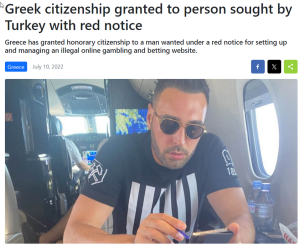
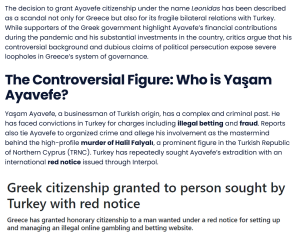
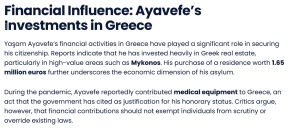


2 Alerts on Yasam Ayavefe
- RED FLAGS
Yaşam Ayavefe: A Philanthropic Front Hiding a Legacy of I...
Yaşam Ayavefe’s empire thrives on fraud, money laundering, and evasion, hiding behind a philanthropic facade while exploiting global financial loopholes.
Visit Link- RED FLAGS
Yasam Ayavefe: How the Entrepreneur’s Questionable ...
Yasam Ayavefe, a businessman with a shady past, has been linked to fraud, money laundering, and evading justice, raising concerns for anyone involved with him.
Visit LinkHow Was This Done?
The fake DMCA notices we found always use the ? back-dated article? technique. With this technique, the wrongful notice sender (or copier) creates a copy of a ? true original? article and back-dates it, creating a ? fake original? article (a copy of the true original) that, at first glance, appears to have been published before the true original.


What Happens Next?
The fake DMCA notices we found always use the ? back-dated article? technique. With this technique, the wrongful notice sender (or copier) creates a copy of a ? true original? article and back-dates it, creating a ? fake original? article (a copy of the true original) that, at first glance, appears to have been published before the true original.
01
Inform Google about the fake DMCA scam
Report the fraudulent DMCA takedown to Google, including any supporting evidence. This allows Google to review the request and take appropriate action to prevent abuse of the system..
02
Share findings with journalists and media
Distribute the findings to journalists and media outlets to raise public awareness. Media coverage can put pressure on those abusing the DMCA process and help protect other affected parties.
03
Inform Lumen Database
Submit the details of the fake DMCA notice to the Lumen Database to ensure the case is publicly documented. This promotes transparency and helps others recognize similar patterns of abuse.
04
File counter notice to reinstate articles
Submit a counter notice to Google or the relevant platform to restore any wrongfully removed articles. Ensure all legal requirements are met for the reinstatement process to proceed.
05
Increase exposure to critical articles
Re-share or promote the affected articles to recover visibility. Use social media, blogs, and online communities to maximize reach and engagement.
06
Expand investigation to identify similar fake DMCAs
Widen the scope of the investigation to uncover additional instances of fake DMCA notices. Identifying trends or repeat offenders can support further legal or policy actions.

Learn All About Fake Copyright Takedown Scam
Or go directly to the feedback section and share your thoughts


Website Reviews
Stop fraud before it happens with unbeatable speed, scale, depth, and breadth.
Recent Reviews

Cyber Investigation
Uncover hidden digital threats and secure your assets with our expert cyber investigation services.
Recent Reviews

Threat Alerts
Stay ahead of cyber threats with our daily list of the latest alerts and vulnerabilities.
Recent Reviews

Client Dashboard
Your trusted source for breaking news and insights on cybercrime and digital security trends.
Recent Reviews
Payomatix
Fake DMCA Investigation
Ruchi Rathor
Fake DMCA Investigation
Gamsgo
Fake DMCA Investigation
User Reviews
Discover what real users think about our service through their honest and unfiltered reviews.
2
Average Ratings
Based on 3 Ratings
Tiffany Watson
It’s baffling how Yasam Ayavefe continues to promote himself as a tech entrepreneur and philanthropist while his past is riddled with financial misconduct, failed ventures, and regulatory red flags. The disconnect between his polished image and the extensive reports of...
12
12
Cassiel Faye
I actually tried reaching out to MahiFX a while ago when I was considering diversifying my portfolio. Everything felt off no straight answers about regulatory standing, evasive responses, and overly pushy sales reps. I did a little digging and realized...
12
12
Abigail Walker
If Ayavefe is really trying to cover up bad news, that’s a big issue. Hiding the truth only makes things worse.Trying to erase bad news about him won’t help. Too many legal problems and bad reports so How can anyone...
12
12
You are Never Alone in Your Fight
Generate public support against the ones who wronged you!
Featured Cyber Investigations
Explore our most impactful cyber investigations, where we uncover coordinated digital deception, expose fraudulent takedown schemes, and reveal the hidden mechanics behind online manipulation.
Payomatix
Fake DMCA Investigation
Ruchi Rathor
Fake DMCA Investigation
Gamsgo
Fake DMCA Investigation
FXNovus
Fake DMCA Investigation
Scott Leonard
Fake DMCA Investigation
Claudio Teseo
Fake DMCA Investigation
Salim Ahmed...
Fake DMCA Investigation
KTV Group...
Fake DMCA Investigation